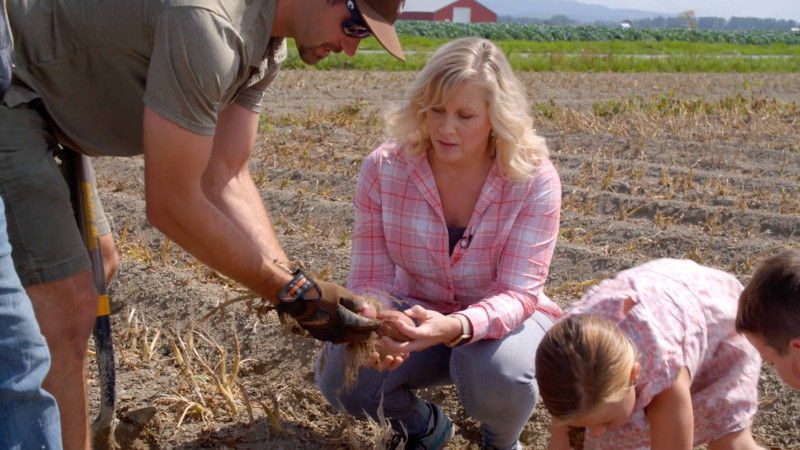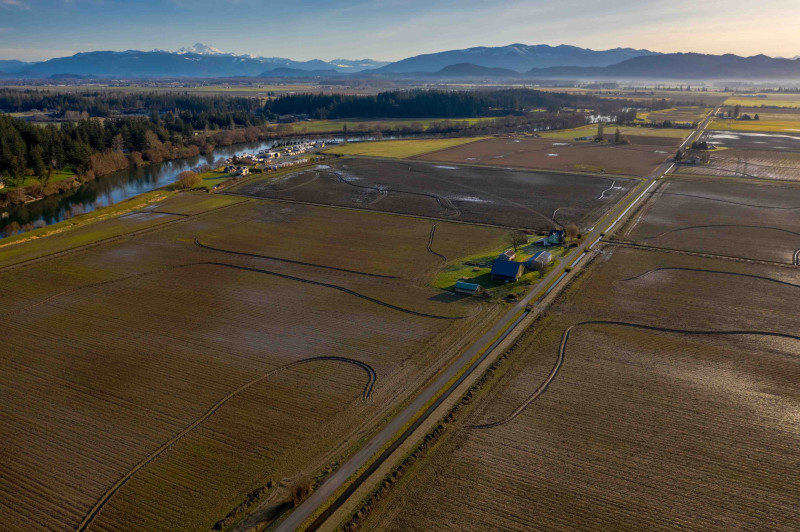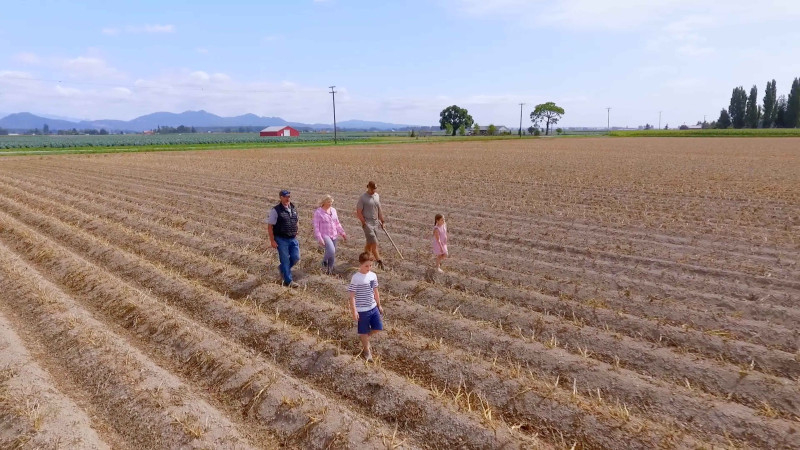5 Generations of Farming in Skagit Valley

If you’re looking to add some color to your holiday feast, there are lots of options. You could add green vegetables like asparagus, yellow squash or corn, or even pink pickled red onions. But if you decide that you want to color up your plate with purple, red, or golden potatoes, Mount Vernon’s Maple Wood Farm has got you covered.
Maple Wood Farm is a family farm, with an extra emphasis on “family.” Roger Jungquist’s family has been farming here for five generations, since his great-grandfather Frank first purchased land southwest of Mount Vernon in 1889. Frank and his son Elmer operated a dairy for nearly 50 years before slowly transitioning the dairy business to a crop farm, eventually settling on potatoes. The farm was expanded by Roger’s father in the 1970s, and now Roger and his son Riley carry on the Maple Wood Farm legacy.
“This area is just really great for growing potatoes,” said Roger, when the Washington Grown crew visited the farm in season seven. “The weather is mild, not too hot. The soil is also a little heavier, so the potatoes keep their color a little better.”
The potatoes certainly do keep their color. Some are a buttery golden yellow, visible even under a layer of dirt in the field. Other fields contain the barn-red potatoes that the Skagit Valley is known for. Other fields are dotted with purple potatoes, which Roger says can add a fun pop of color to a potato salad or any other dish. After they’re cleaned off, all of them have a soft, smooth finish.
In order for the potatoes to have that smooth finish, they have to go through a process that’s called a skin set. “On a red potato, for example, if you just dug one that still had the vines connected to it, you couldn’t hardly dig it without the skin rubbing off,” said Roger. Instead, the fully matured potato plants have their vines mowed in August to terminate any further growth. Then the potatoes begin a 30-day “skin-set” cure. Finally, by late summer, these vibrant and hearty potatoes are ready to be harvested, packaged, and shipped across the U.S.
“Growing potatoes, I mean, it's kind of like growing a family,” said Riley, the fifth-generation farmer, as he eyed his own children playing in the potato fields. “You gotta keep an eye on it; you gotta take care of it; you gotta be there every second of the way to make sure you're trying to do your best.”
As the kids giggled and played in the soil with host Kristi Gorenson, their father and grandfather looked on, smiling. The family farm has survived for five generations, and it seemed to everyone watching that generation number six surely loved this land as well.
“It's an adventure, but it's a fun adventure for sure,” said Riley. “I wouldn't change it for the world.”



